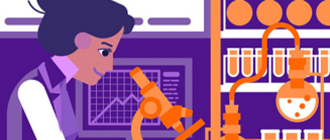
Young Entrepreneurs Leverage New Opportunities To Grow
By FedEx | August 31, 2023
Economic incentives and emergent technologies welcome young entrepreneurs to the table. Finding the right resources to launch and grow can be a game-changer.
Entrepreneurship is the lifeblood of any economy, bringing fresh ideas for new products and services to drive growth and job creation. Whether it be opening a small business in your neighborhood or aspiring to become the next tech giant, entrepreneurs today face a rapidly evolving market landscape with a wealth of opportunities to pursue.
The last few years has seen various economic disruptions, which counterintuitively present the perfect conditions for new businesses to thrive. Big tech lay offs means thousands of workers with valuable, in-demand tech skills are now looking for their next gig, freeing up a wave of available ingenuity that was before concentrated at a few big companies.
Societal change is also spurring people to pursue the freedoms of being their own boss, creating value on their own terms, and enjoying better work-life balance with health and wellbeing in mind. At the same time, emergent digital technologies like artificial intelligence (AI) and the rise of social commerce offer lower barriers to entry for small businesses to spring up at lightning-fast speeds.
The next generation of entrepreneurs is also welcoming younger hopefuls, as recovery from the pandemic has spurred a surprising uptick in entrepreneurship and 44% of young people are now interested in starting a business of their own. Of an estimated 600 million entrepreneurs worldwide, approximately 220 million of those are under the age of 35; and young entrepreneurs create nearly 30 million jobs globally each year.
With more opportunities, of course, comes more competition. Young entrepreneurs must be aware of how market demands are transforming as well as the resources they can tap into in order to grow.
The time is ripe for entrepreneurship
The Asia Pacific region is known to be fertile ground for entrepreneurs, with the latest data showing that in H1 of this year, funding for startups in Asia has been over $36 billion.
Meanwhile, a growing number of bilateral and multilateral trade agreements like the Regional Comprehensive Economic Partnership (RCEP) will bring start-ups and small businesses more opportunities to join a wider and stronger regional value chain.
Supply and demand shocks brought on by the pandemic have led to businesses redesigning their manufacturing and supply chain strategies as well, shifting to a more diversified sourcing strategy with demand for manufacturing in countries like Vietnam, Thailand, India, and the Philippines.
The democratization of technology has also levelled the playing field for aspiring entrepreneurs, who can set up with own businesses faster and more easily. It now costs 80% less to set up a company thanks to cloud-based technology, which is more than halving start-up costs.
The future will become increasingly shaped by data-driven technologies, and digital transformation is essential to remain competitive. Many are already moving up on the digital adoption curve faster than before, building online businesses to serve customers across the globe.
That includes utilizing tools like AI and Machine Learning to rewrite the rulebooks, digitize services to be ‘future-ready’, and breed innovation to move your business ideas forward.
Resources that bring ideas to fruition
For young and aspiring entrepreneurs, finding the right resources to get started can make a world of difference. Putting your ideas and plans out there is often the first step of being discovered.
FedEx understands the importance of nurturing the next generation of dreamers and building bridges for young entrepreneurs to reach their potential. That’s why since 2007, it has supported the FedEx/JA International Trade Challenge (FedEx/JA ITC) program in the region to educate and inspire students to better understand entrepreneurship and think globally through practical teamwork exercises and classroom learning.
In 2022, the program was further extended to India, making it an AMEA initiative. In the last 17 years the program has inspired and benefitted more than 45,000 students across the region, providing them with access to industry leaders and entrepreneurs, and introducing them to the world of business, economics, and international trade.
Each year, students are encouraged to produce real-world business proposals that exhibit inventive thinking, connection to new markets, potential for community involvement and social responsibility. This provides practical experiences that further prepare them to enter the market. Year on year the competition has seen strong collaboration from the industry with leading entrepreneurs joining the competition as judges, and mentoring the students.
FedEx is committed to support small and medium businesses (SMEs) grow and expand their ventures, through the AMEA FedEx Small Business Grant Content (SBGC). First launched in the U.S. in 2012, FedEx expanded SBGC to 31 international markets, including Europe and across Asia Pacific, Middle East & Africa (AMEA).
Similarly through FedEx Innovation Lab (FIL), which was launched to cultivate and collaborate with rising digital start-ups in the key market of India as well as the wider region. Investments have already been made in companies like Mad Street Den and Floship, which each offer unique and cutting-edge solutions for businesses and e-commerce brands worldwide.
SHARE THIS STORY
- Generative AI: A New Frontier
- How To Ship A Giant Panda
- How To Make Freight Shipments Work For Your Small Business
- The Rise Of Intra-Asia Trade: Opportunities In The China-Southeast Asia Corridor
- Where Do Old Planes Go When They Retire?
- What’s So Dangerous About Coconuts? Your Guide To Dangerous Goods Logistics
Sign up now and save on your shipping rates!
Sign up now and earn discounts by shipping instantly with FedEx Ship ManagerTM at fedex.com.
Recommended For You

Top 3 Trends For The Future Of Entrepreneurship
Becoming an entrepreneur is now the first choice for young people in Asia, who aspire to found new businesses over traditional employment.
Read More
How To Empower More Women In STEM Fields
It’s essential to create more opportunities for girls and women in STEM industries.
Read More
How One Hong Kong Entrepreneur Is Changing The Game In Menstrual Health
Social impact entrepreneur Olivia Cotes-James explains how her company, LUÜNA, tackles menstrual health, one period at a time.
Read More
